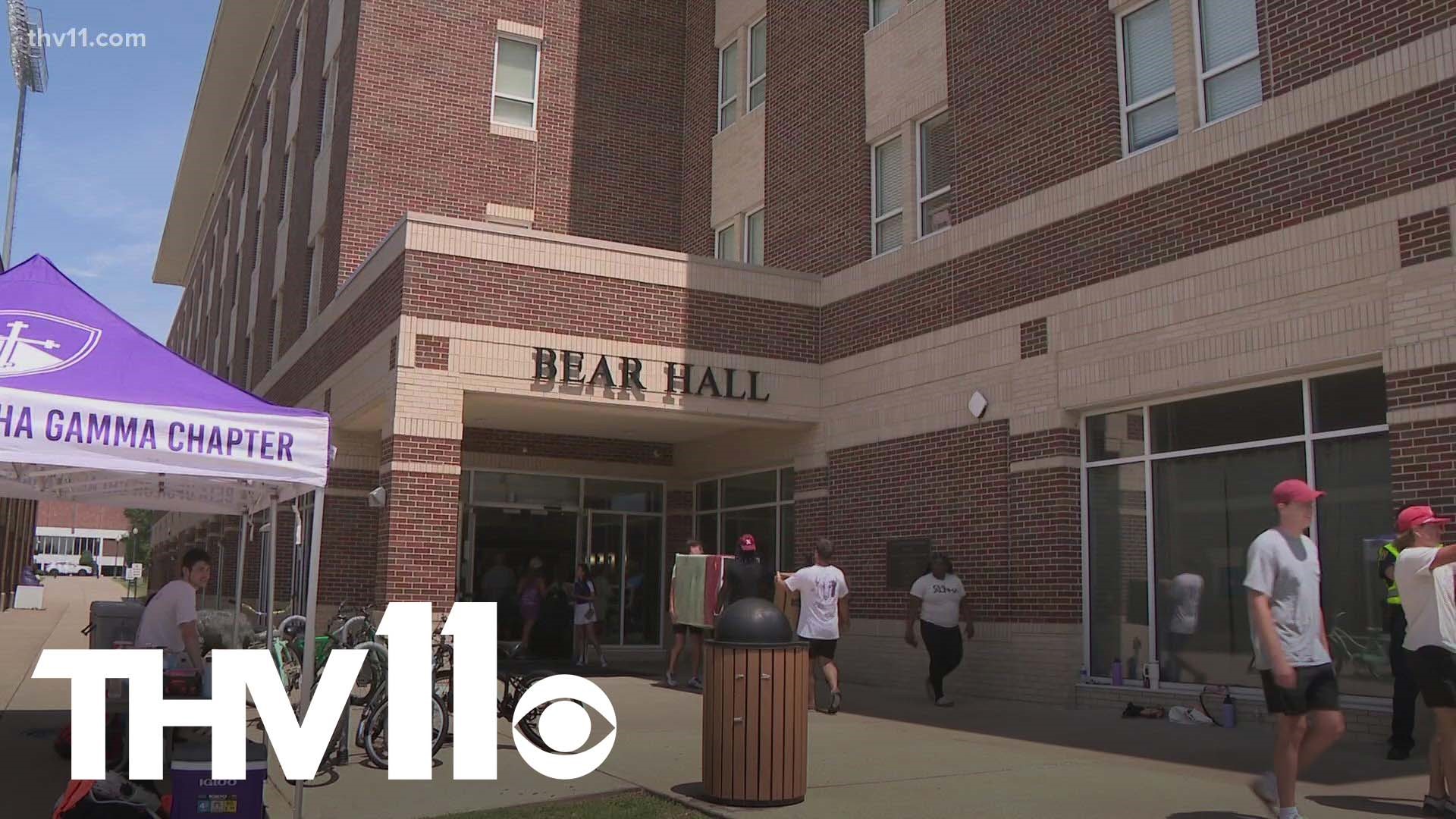CONWAY, Ark. — An Arkansas university is pushing to raise the playing field for incoming freshmen using grant money through the Strengthening Institutions Program with the U.S. Department of Education.
The $1.6 million dollar grant will allow The University of Central Arkansas to help low-income, first-generation students.
The first year of college can be difficult for most college freshmen— and adding a layer of being a first-generation student or low-income can impact their success.
“As a low-income college student, myself, I know that it really helps to have a team there to help you to guide you through,” said Julia Winden Faye, Director of the Office of Student Success at UCA.
The $1.6 million from the U.S. Department of Education will help build that team at UCA.
“We really focused the grant on staff that would be available to help our low-income students get off to a great start,” Faye said.
Hired staff will form "Bear Life," which will be a five-year program for UCA's first-time, low-income students.
Bear Life will be composed of a director, professional counselor, full-time administrator, graduate assistant, and three peer guides.
“We think about the questions that they should be asking, maybe even before they think about those questions,” said Nadia Eslinger, Director of Bear Life. “We are preparing things, putting things in place for them before they even arrive, to help them kind of transition through college.”
That high school to college transition, according to Eslinger, strongly impacts first-generation students.
"They may not have people at home who can say you need to go talk to the registrar, or you need to call your academic advisor, they just may not know those things, and the students may not know what to ask,” Eslinger explained.
Many of the incoming freshmen are Generation Z, who have experienced their fair share of adversity before entering college, but Faye said that the first-year experience still presents challenges.
"This group went through COVID, they did a lot of online and now when they hit campus, it's a little different experience,” Faye said.
She added that the difficulty shows in UCA's retention rates for low-income, first-generation students.
“Our first-year retention rates for this group are lower than our non-Pell eligible and our graduation rates are lower than for our non-Pell eligible students,” Faye said.
Bear Life will directly target those students, which make up 40% of UCA's incoming freshmen each year.
"Any student who fills out FAFSA, their financial aid application, and they qualify as Pell-eligible, they qualify to be a part of the program,” Eslinger said.
The program's purpose hit home for Faye since she was also a low-income, student when she first went off to college.
“We are working out of a personal passion for helping students be successful remembering where we struggled,” Faye said.
The same sentiment was shared by Eslinger.
“It's personal for me because I do want to help students, I think college would have felt different for me if I had a program like this,” Eslinger added.
The funding from the federal government will also go towards funding for 50 low-income students to take part in the Summer Bridge Program at UCA to make sure students get off on the right foot.

